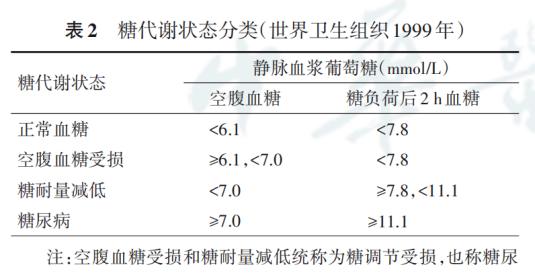Pre-sugar, as the name suggests, has not yet reached the stage of diabetes, but it has begun to be involved with diabetes. "Rome was not built in a day", diabetes is also a chronic development process, its development is generally divided into three stages, namely "high-risk population" stage, "prediabetes" and "diabetes".
If a clinician diagnoses impaired fasting blood glucose (IFG) and/or impaired glucose tolerance (IGT), you are probably in the prediabetes stage.

Amazing data show that the prevalence of prediabetes in Chinese adults is as high as 35.2%, which means that one of the 3 adults is a reserve army of diabetes, with an average of 5-10% of pre-diabetic populations developing diabetes every year, and eventually 70% of pre-diabetes will develop into diabetes, and pre-diabetes is the last pass to develop diabetes!
What are the dangers of pre-sugar?
Many people think that even if they have prediabetes, they think it is irrelevant, because patients with prediabetes have almost no discomfort or clinical symptoms, and do not seem to have a negative impact on daily life.
In fact, prediabetes is considered a sign or watershed, the emergence of prediabetes marks the future risk of diabetes, cardiovascular and cerebrovascular diseases, microangiopathy, renal failure, tumors, dementia and other diseases increased.
One study retrospectively analyzed 25,829 patients aged 18 to 104 years with normal prediabetes or glycosylated hemoglobin levels in the Beaumont health system in 2006-2020. The researchers found that the incidence of major adverse cardiovascular events (cerebrovascular accident, myocardial infarction, unstable angina or acute coronary syndrome) in the prediabetes group was significantly higher than that of the healthy control group by 17.97%, and the difference between the two groups was statistically significant (P<0.05).
Human microbiome Phase II research results show that the pre-sugar stage is closely related to intestinal microbiota disorders; the study of Ji Qiuhe and Professor Ji Qiuhe's team at the Xijing Hospital of the Fourth Military Medical University also proved that the fecal microbiota of patients with type 2 diabetes mellitus (T2D) has changed when they are not in normal blood sugar. It shows that the intestinal flora is an important factor in pre-sugar.
Recently, Peking Union Medical College Hospital and tsinghua Straits Research Institute Medical Nutrition Research Center conducted the clinical research results of "Mechanism study on the treatment of inulin-type soluble dietary fiber extracted from Jerusalem artichoke in the treatment of type 2 prediabetes" "Dietary Supplementation with Inulin Modulates the Gut Microbiota and Improves Insulin Sensitivity in Prediabetes" was published in the International Journal of Endocrinology. It was once again confirmed that using prebiotics to adjust the structure of the intestinal flora can improve insulin sensitivity in patients with preglycemia and help reverse prediabetes.
A total of 49 patients with pre-glucose were included in this study, and the trial period was from July 2016 to December 2017, during which the patients supplemented with 15g of inulin per day for 6 months, and the original diet and exercise habits were maintained and recorded during the trial.
The results showed that inulin intervention significantly reduced fasting blood glucose at 3 months, insulin levels on fasting and after meals were significantly reduced after 6 months of intervention, and insulin sensitivity (HOMA-IR) was significantly improved after 6 months of intervention.
Through mechanism studies, it was found that supplementation with inulin promoted the significant proliferation of probiotics such as bifidobacteria and lactic acid bacteria, and at the same time inhibited the growth of conditioned pathogenic bacteria Alistipes, reduced inflammation in the body, and achieved the effect of improving metabolism.
Background information:
The clinical research has received strong support and assistance from Peking Union Medical College Hospital, Tsinghua University Academy of Biological Sciences, Tsinghua Changgeng Hospital, Tsinghua Strait Research Institute Medical Nutrition Research Center and other units.